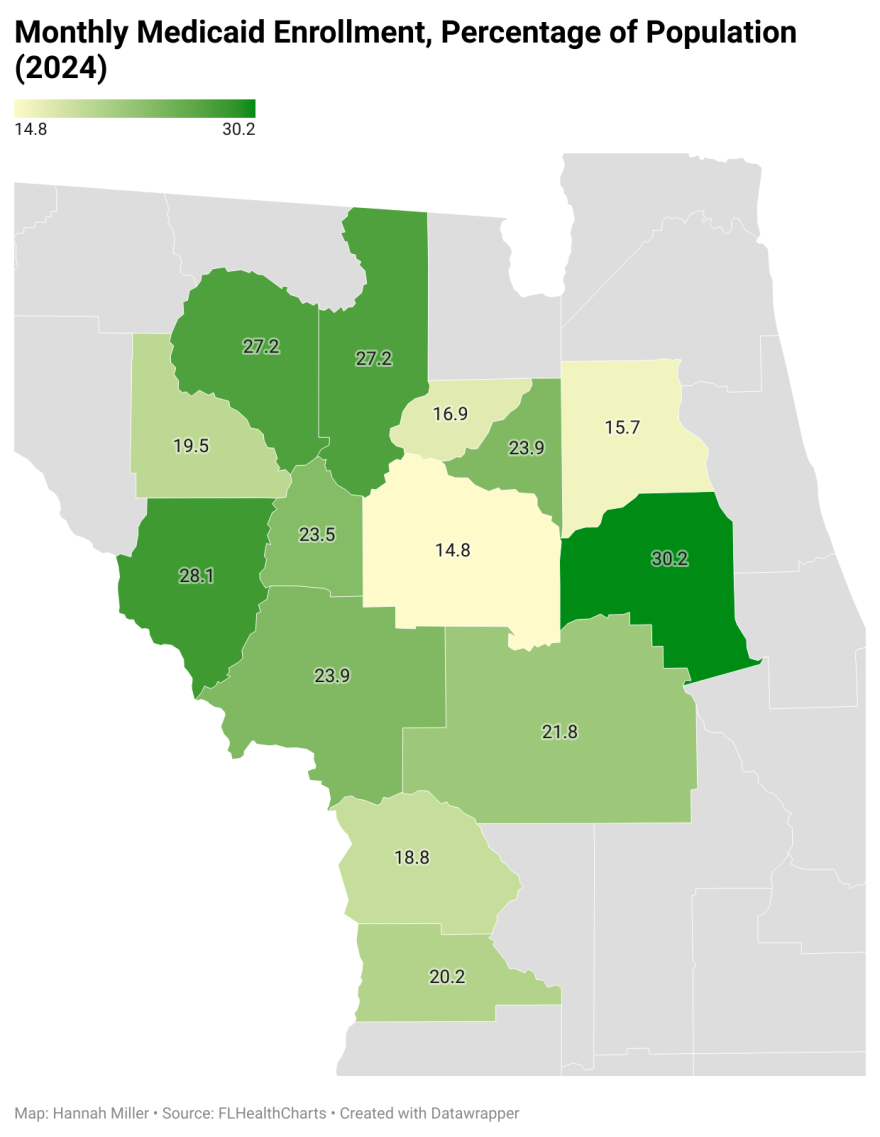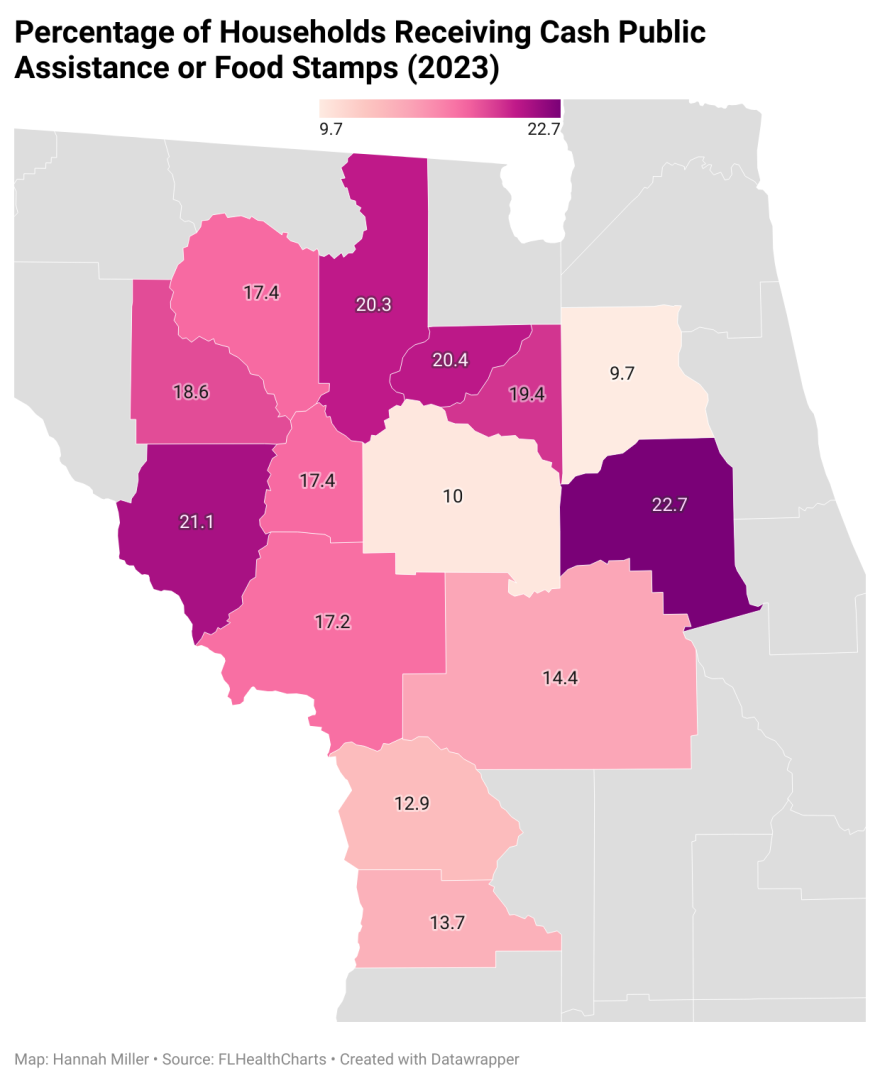The sound of long, loud honks erupted as cars zipped along West Newberry Road. At the intersection of Northwest 62nd Street, people lined the sidewalks for the Families First protest.
According to Families First, the mission of the national marches and rallies on Saturday was to “put care over the cruel cuts and attacks on families that we’re seeing from Congress and the White House.”
The One Big Beautiful Bill Act was signed into law on July 4, raising concerns about cuts to Medicaid and the Supplemental Nutrition Assistance Program, or SNAP.
The Florida Department of Children and Families defines SNAP as “the nation’s most important anti-hunger program.”
It’s a federal program that provides support in accessing food for a variety of people, including low-income families, seniors and people with disabilities. SNAP benefits can only be used to purchase food and no other necessities.
“The bill will require the biggest cut to SNAP since the food stamp program began in 1939, during the Great Depression,” according to the New York Times.

Monique Costantino, 63, is retired and is dedicating her days to activism. She founded the group “Bada-- Feminists Gainesville,” whose members rallied at the protest.
“It’s about taking care of our most vulnerable people, our older people, our children, marginalized people.”
“We want to stand up for, against Medicaid cuts, against SNAP cuts, against Medicare cuts, against cuts against the Department of Education. Just really, there are so many things that are going on, and we’re just trying to protect democracy,” she said.
The bill was not favorable among Americans prior to its passing, according to a Quinnipiac University poll. 55 percent of people opposed the bill, while only 29 percent of people supported it. However, 47 percent of voters approved of the proposed changes to Medicaid while 46 percent opposed them.
The new law requires that states redetermine eligibility for people receiving Medicaid every 6 months. Individuals under 65 must verify that they are “working or participating in quality activities for at least 80 hours per month,” according to the Kaiser Family Foundation.
Concerns have continued to mount since the passing of the bill earlier this month. Costantino worries about her friend who receives disability benefits and Medicaid.
“People that are making that little money that Medicaid is helping, those people are struggling to get by day to day. And if you take away their health care, it’s just, it’s just horrendous, especially because it’s going to fund tax cuts for the top earners and top corporations,” she said.
Prior to the bill’s passing, The Budget Lab at Yale University projected that the bill will decrease the incomes of the bottom 10 percent of earners by more than 6.5 percent, and the top 10 percent will have an increase of 1.5 percent.
But Congresswoman Kat Cammack, who represents Florida’s Third District, said the bill “protects rural hospitals, cleans up waste in programs like SNAP and Medicaid, and ensures benefits go to those who truly need them—not illegal immigrants or elite institutions gaming the system,” in a press release.
This bill likely won’t protect rural hospitals. According to the American Hospital Association, 96% of hospitals have half of their inpatient days paid by Medicare and Medicaid, and these programs account for most hospital visits.
“Because of the fixed nature of these payments, hospitals are unable to fully absorb the tremendous inflationary forces they are currently facing,” said the AHA.

The Congressional Budget Office’s cost estimate projects that the bill will cut federal government Medicaid spending by $793 billion, and 7.8 million people will become uninsured, according to KFF.
Travis Coulliette, 53, teaches GED classes at Santa Fe and organized the Families First protest on Saturday.
“Oh, it’s heartbreaking,” he said in reference to Medicaid cuts.
“The whole narrative to where there are so many people taking advantage of it is not true.”
Georgetown University said about 5% of Medicaid payments were improper in 2024, but the number doesn’t account for instances of insufficient documentation or issues with providers or services received.
“This bill has to go through numerous different things before it is enacted, but as it stands right now, this is going to be devastating.”
Seth Harp, 46, is a history and civics teacher who rallied at the protest on Saturday. He is currently campaigning to run against Kat Cammack for her seat in Congress in 2026.
“When it comes to this, this was nothing more than a diversion of money and care from the people that need it most so billionaires can have more goodies,” he said.
“This is the prime focus of all this, is billionaire’s boats are more important than children’s coats.”
